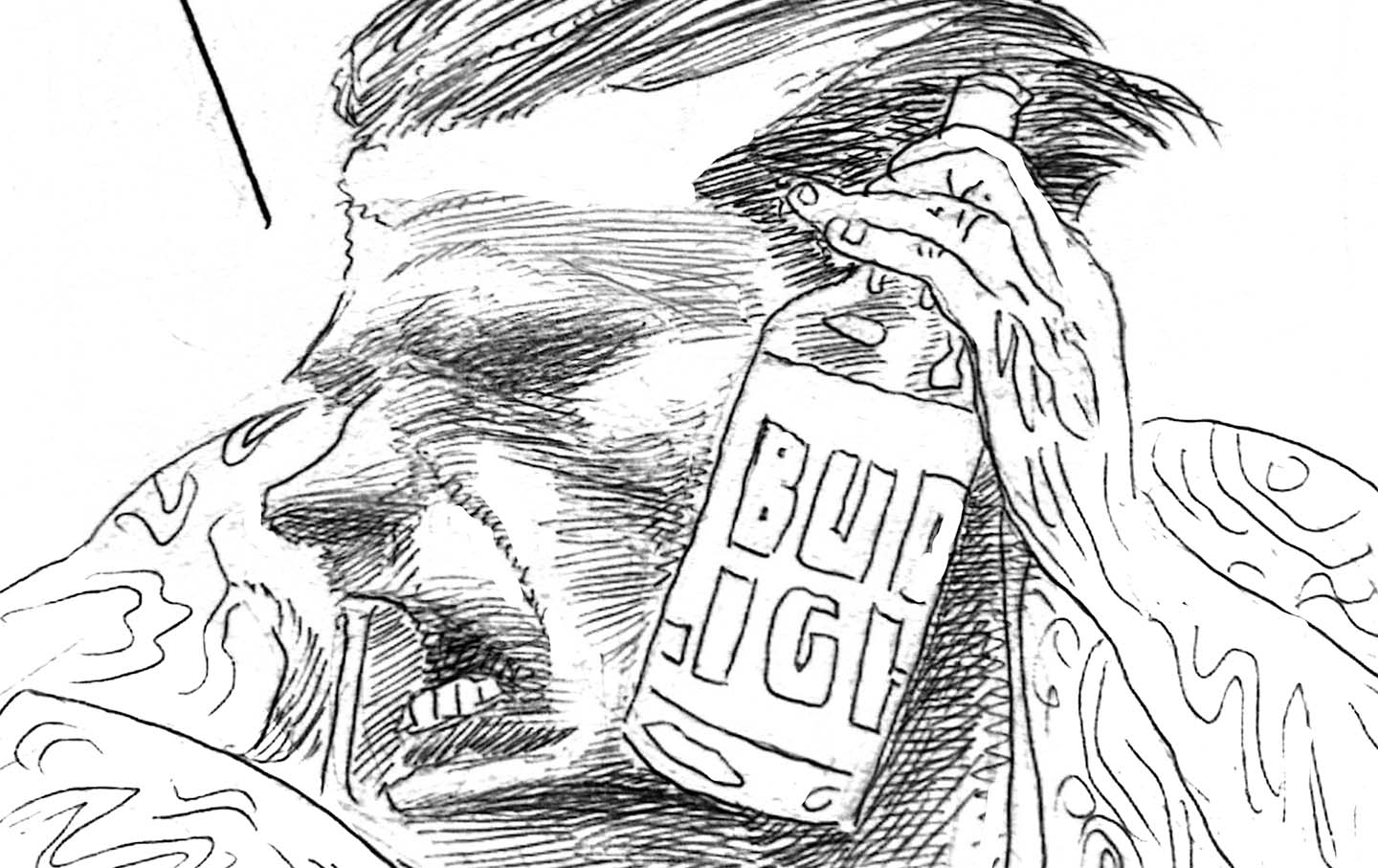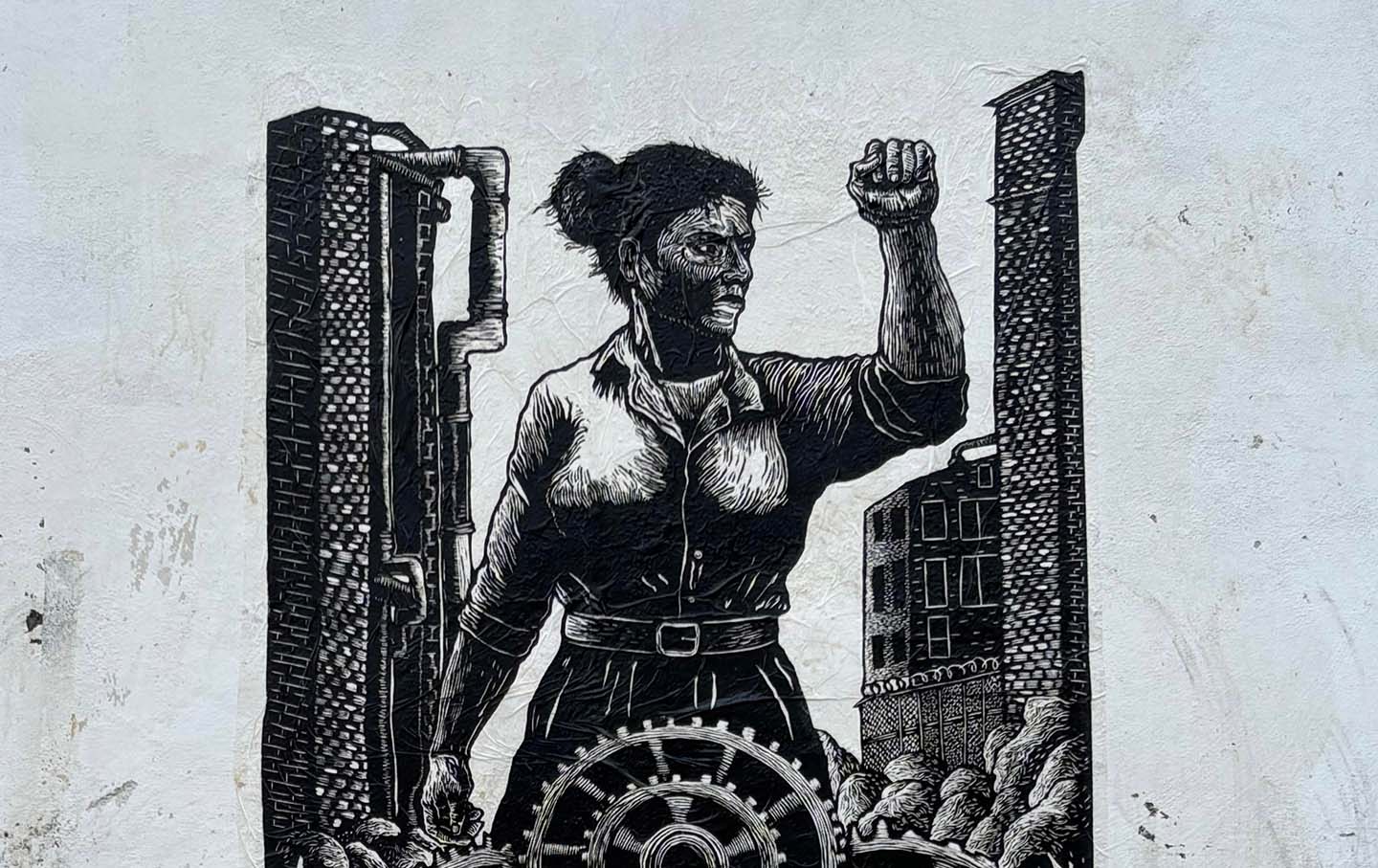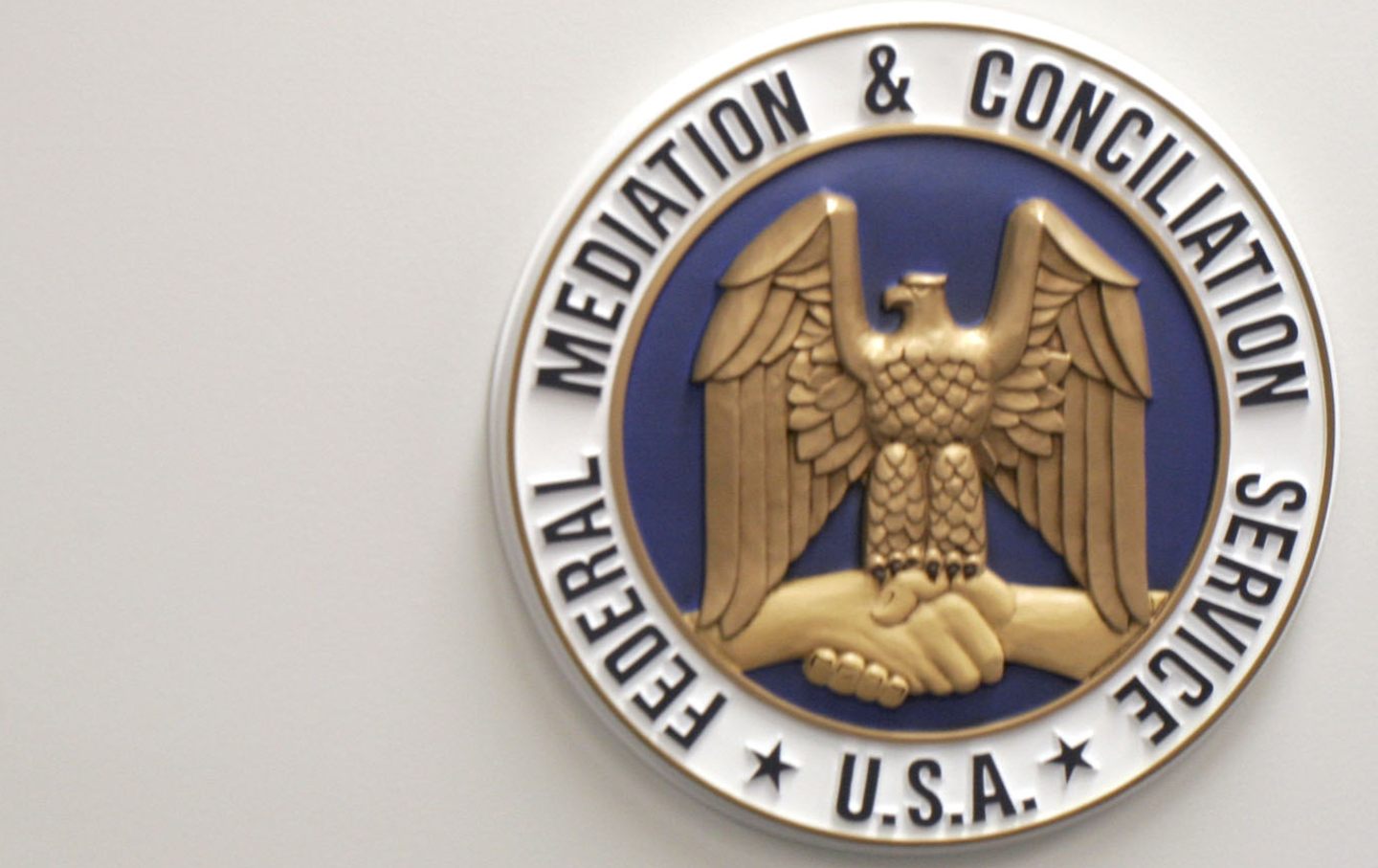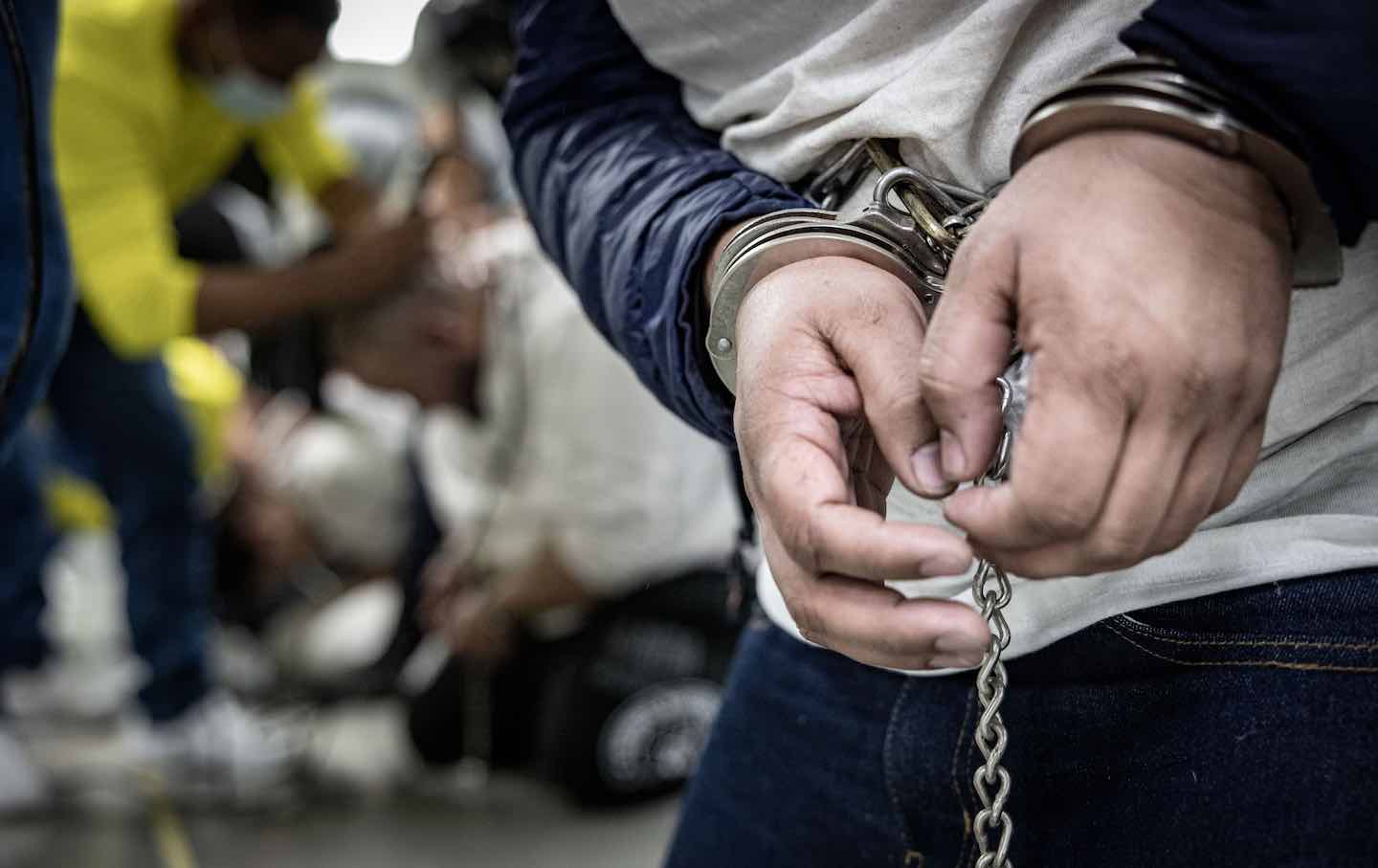Biden Should Use His Pardon Power for More Than Just Turkeys
More than 65 members of Congress have asked Biden to use his clemency power to “address long-standing injustices in our legal system.”
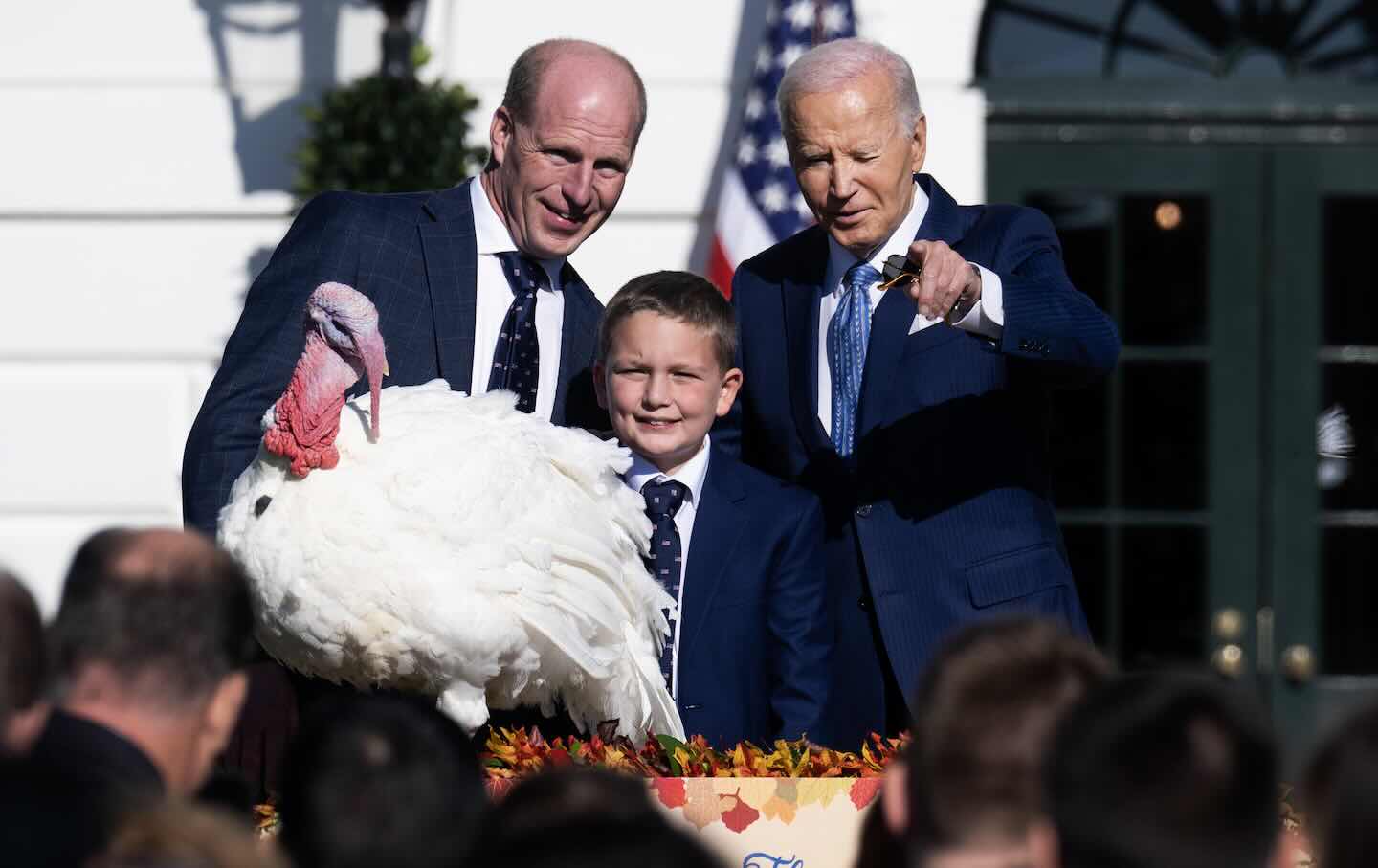
President Joe Biden, John Zimmerman, chairman of the National Turkey Federation, and his son Grant, 9, talk after Biden pardoned two turkeys, Peach and Blossom, during the National Thanksgiving Turkey Pardoning on the South Lawn of the White House on Monday, November 25, 2024.
(Tom Williams / CQ Roll Call)
President Joe Biden pardoned a pair of turkeys Monday, as part of a daft ritual organized in cooperation with the National Turkey Federation to prop up agribusiness profits in the run-up to Thanksgiving. The annual turkey pardoning has in recent years been one of the rare moments—aside from hearings featuring Republican grumbling about Hunter Biden’s legal troubles, and Democratic grumbling about Donald Trump letting his allies like Steve Bannon and Roger Stone off the hook—when the national new media systematically focuses attention on the president’s power to issue pardons and clemency orders.
That’s unfortunate, because the power “to grant reprieves and pardons,” as it is outlined in Article II of the US Constitution, offers presidents the awesome authority not just to intervene in the individual cases of folks who ended up on the wrong side of federal law enforcement but also to address inequities in a criminal justice system that frequently fails to attack crime or deliver justice for communities that have for decades experienced disproportionate numbers of arrests and prosecutions, and disproportionate levels of incarceration. So it is that, as Thanksgiving approached this year, criminal justice reformers and members of Congress have sought to get the president to consider pardoning human beings.
Last week, Leah Wang, a senior research analyst at the Prison Policy Institute, made the case for an expansive view of when and how to grant pardons, especially in death-penalty cases.
Every November, it has become a light-hearted tradition for the president and some governors to “pardon” turkeys before the Thanksgiving holiday, sparing them from the dinner table. But when the nation’s political leaders take part in an annual turkey pardon, it’s hard not to think about the chronic underuse of clemency powers across the U.S., especially for people on death row.
If turkey pardons are about choosing life over death, using clemency powers to empty remaining death rows is a straightforward way for elected leaders to act on those values and reject a horrific practice.
Yang is right on this particular point, and she is not alone this year in making a case that President Biden should, in the last months of his tenure, use presidential pardon and clemency powers to remedy disparities and injustices in the criminal justice system.
Sixty-seven House members, led by Ayanna Pressley of Massachusetts, James E. Clyburn of South Carolina, and Mary Gay Scanlon of Pennsylvania, signed a November 20 letter to President Biden, which argued for a bolder embrace of the executive clemency power as a tool for achieving justice and saving taxpayer dollars that are now used to incarcerate Americans who were not convicted of violent crimes and do not pose a threat to society:
As you continue to deliver for the American people during the final months of your presidency, we urge you to use your executive clemency power to reunite families, address longstanding injustices in our legal system, and set our nation on the path toward ending mass incarceration.
Mass incarceration remains a persistent, systemic injustice that erodes the soul of America. Our nation has the highest incarceration rate in the world, with nearly two million people locked in jails and prisons throughout the country. The extreme use of incarceration has resulted in one in two adults having an incarcerated family member.
The letter makes a moral and practical case against mass incarceration, arguing,
While the most marginalized Americans feel the worst impacts, the entire country pays the cost of mass incarceration. In strictly fiscal terms, researchers estimate the total annual cost to taxpayers is $182 billion, which is more than double the Department of Education’s entire budget Our country is spending exorbitant amounts of money to keep people in prison for prolonged periods of time, including those who do not pose a significant public safety threat. In our growing federal prison population, 90 percent of people are convicted of non-violent offenses. The reliance on incarceration in our legal system has created a crisis that must be addressed.
There are always cases to be made for individual reprieves. For instance, a signer of the letter on mass incarceration, Wisconsin Representative Mark Pocan, along with the National Caucus of Native American State Legislators, have advocated for clemency for Leonard Peltier. The 80-year-old Indigenous rights activist has served almost a half century in federal prison for crimes he says he did not commit, and based on trials that were riddled with misconduct.
But there is a compelling argument for a broader application of pardon and clemency powers. “This is a power that has been a really important release valve in the overcrowded, overburdened criminal court system,” says Emily Galvin-Almanza, a lawyer who serves as executive director of the group Partners for Justice. “Presidents and governors can use pardons and clemency to release—and lessen the sentences of—people whose stories are meritorious, or sympathetic, really, who just do not deserve to continue under the punishment that they’ve been given.”
Galvin-Almanza makes a timely point when she reminds us, “As recently as the 1920s, this was used all the time. Presidents used to grant pardons and clemency to thousands of people. Now, with the notable exception of President Obama, who did use his pardon and clemency powers, presidents just don’t so that that much anymore. [That] is how we get to a situation where Joe Biden grants clemency to turkeys every Thanksgiving and has not yet granted clemency to any of the 40 people now sitting on [the federal] death row—whose lives he could save right now.”
Support independent journalism that exposes oligarchs and profiteers
Donald Trump’s cruel and chaotic second term is just getting started. In his first month back in office, Trump and his lackey Elon Musk (or is it the other way around?) have proven that nothing is safe from sacrifice at the altar of unchecked power and riches.
Only robust independent journalism can cut through the noise and offer clear-eyed reporting and analysis based on principle and conscience. That’s what The Nation has done for 160 years and that’s what we’re doing now.
Our independent journalism doesn’t allow injustice to go unnoticed or unchallenged—nor will we abandon hope for a better world. Our writers, editors, and fact-checkers are working relentlessly to keep you informed and empowered when so much of the media fails to do so out of credulity, fear, or fealty.
The Nation has seen unprecedented times before. We draw strength and guidance from our history of principled progressive journalism in times of crisis, and we are committed to continuing this legacy today.
We’re aiming to raise $25,000 during our Spring Fundraising Campaign to ensure that we have the resources to expose the oligarchs and profiteers attempting to loot our republic. Stand for bold independent journalism and donate to support The Nation today.
Onward,
Katrina vanden Heuvel
Editorial Director and Publisher, The Nation


